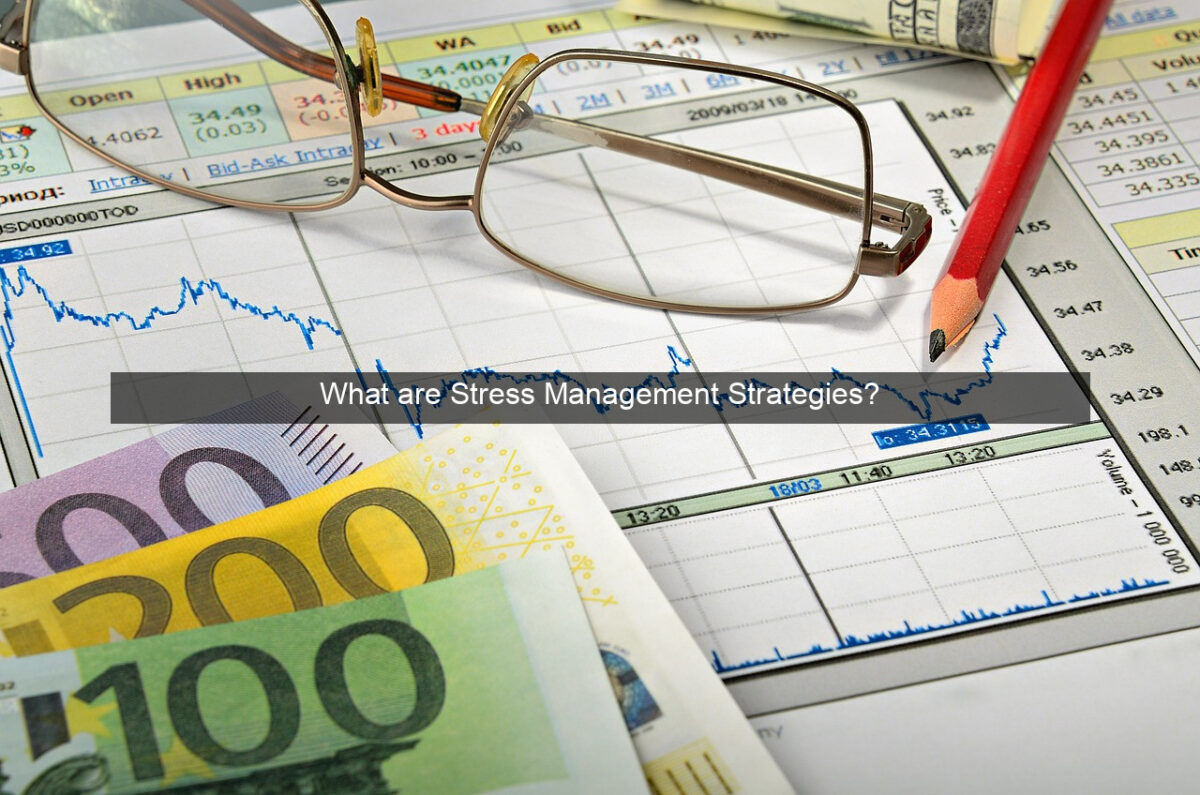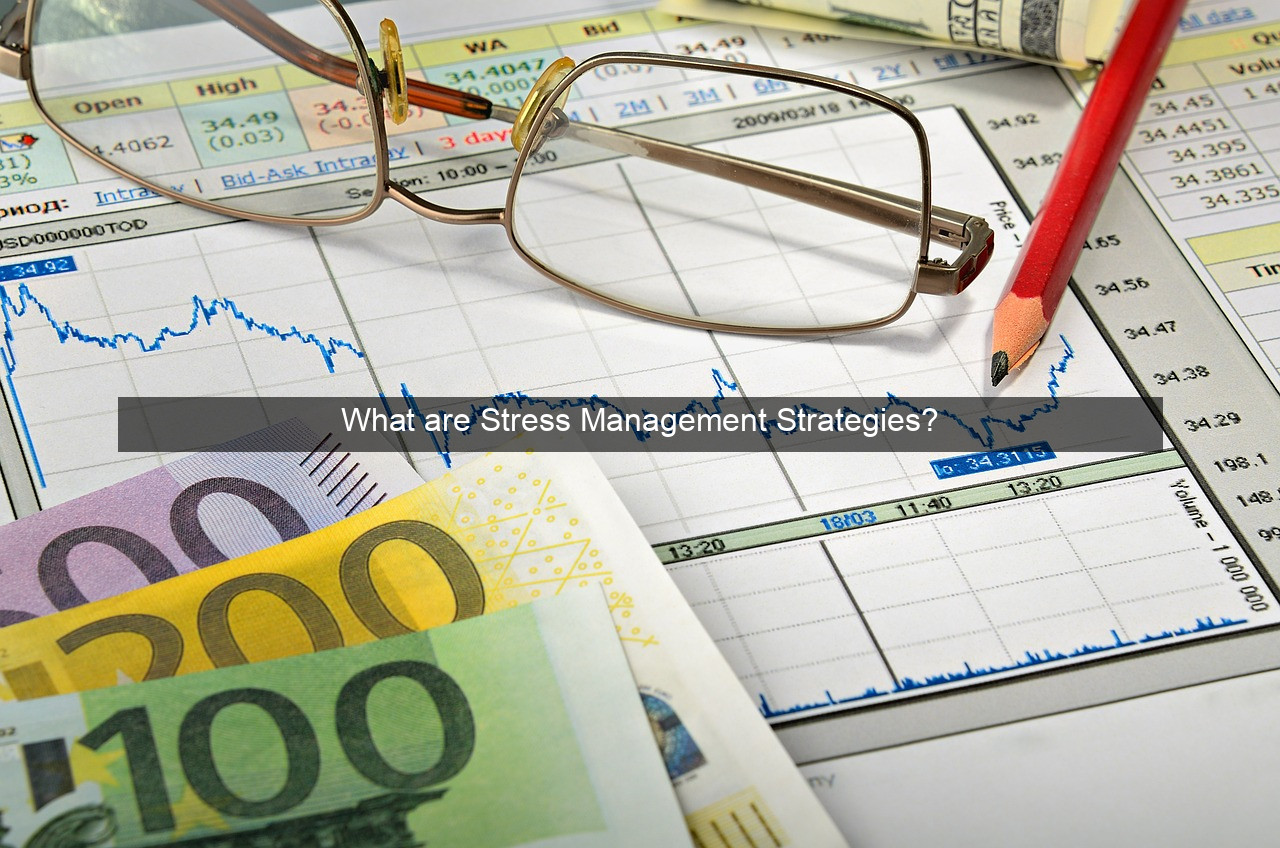What are Stress Management Strategies?

- What are Stress Management Strategies?
- Stress Management Strategies: Your Guide to a Calmer Life
- Understanding Stress and Its Impact
- Recognizing the Signs of Stress
- The Importance of Stress Management
- Effective Stress Management Techniques
- Mindfulness and Meditation
- Physical Activity and Healthy Lifestyle
- Building Strong Social Connections
- Time Management and Prioritization
- Effective Scheduling and Organization
- Setting Realistic Goals and Expectations
- Conclusion

Stress Management Strategies: Your Guide to a Calmer Life
Stress is an unavoidable part of modern life. From demanding jobs to family responsibilities, daily pressures can take a toll on our physical and mental well-being. While some stress can be motivating, chronic stress can lead to serious health problems. That’s why effective stress management is crucial for maintaining a healthy and balanced life. Learning to manage stress effectively empowers you to navigate challenges, improve your overall health, and enhance your quality of life. This comprehensive guide explores various stress management strategies, providing you with practical tools and techniques to regain control and cultivate inner peace.

Understanding Stress and Its Impact
Recognizing the Signs of Stress
Stress manifests differently in each individual. Common physical symptoms include headaches, muscle tension, fatigue, and digestive problems. Emotional signs can range from irritability and anxiety to feelings of overwhelm and sadness. Recognizing these signs early is crucial for implementing effective stress management techniques.
Ignoring stress can lead to more severe consequences, including chronic health conditions like heart disease and weakened immune function. It can also negatively impact relationships and job performance. Being mindful of your body’s signals allows you to address stress proactively and prevent it from escalating.
Paying attention to your emotional and physical state is the first step in understanding your stress levels. Keeping a stress journal can be a helpful tool in identifying triggers and patterns. This awareness empowers you to take control of your well-being and implement appropriate stress management strategies.
The Importance of Stress Management
Effective stress management is not about eliminating stress entirely, but rather about developing healthy coping mechanisms. By learning to manage stress, you can improve your physical and mental health, enhance your productivity, and strengthen your relationships.
Stress management techniques equip you with the skills to navigate challenging situations with resilience. They enable you to respond to stressors in a healthy way, minimizing their negative impact on your well-being. Investing in stress management is an investment in your overall health and happiness.
When you prioritize stress management, you create a foundation for a more balanced and fulfilling life. You become better equipped to handle challenges, maintain positive relationships, and achieve your goals. This proactive approach to well-being fosters resilience and empowers you to thrive.
Effective Stress Management Techniques
Mindfulness and Meditation
Mindfulness practices, such as meditation, involve focusing on the present moment without judgment. This can help calm the mind, reduce anxiety, and improve overall well-being. Regular meditation can rewire the brain, increasing resilience to stress.
Deep breathing exercises are a simple yet powerful way to manage stress in the moment. By slowing down your breath and focusing on your inhales and exhales, you can activate the body’s relaxation response and reduce feelings of anxiety.
Yoga combines physical postures, breathing techniques, and meditation to promote relaxation and reduce stress. The practice of yoga can improve flexibility, strength, and balance, while also calming the mind and reducing stress hormones.
Physical Activity and Healthy Lifestyle
Regular exercise is a powerful stress reliever. Physical activity releases endorphins, which have mood-boosting effects. Exercise can also improve sleep quality, reduce muscle tension, and increase energy levels.
Maintaining a healthy diet is crucial for managing stress. Nutrient-rich foods provide the body with the energy and resources it needs to cope with stress effectively. Avoiding processed foods, sugary drinks, and excessive caffeine can also improve mood and energy levels.
Prioritizing sleep is essential for stress management. Adequate sleep allows the body to repair and restore itself, both physically and mentally. Aim for 7-9 hours of quality sleep each night to improve your ability to handle stress.
Building Strong Social Connections
Connecting with supportive friends and family members can provide a valuable buffer against stress. Social support can offer emotional comfort, practical assistance, and a sense of belonging.
Engaging in activities you enjoy can provide a much-needed distraction from stress. Hobbies and leisure activities can boost your mood, increase creativity, and provide a sense of accomplishment.
Setting healthy boundaries is crucial for managing stress. Learning to say no to commitments you can’t handle can protect your time and energy, preventing overwhelm and burnout.
Time Management and Prioritization
Effective Scheduling and Organization
Effective time management can significantly reduce stress levels. Creating a schedule and prioritizing tasks can help you feel more in control of your time and reduce feelings of overwhelm.
Breaking down large tasks into smaller, more manageable steps can make them seem less daunting. This can increase your sense of accomplishment and reduce procrastination, which can contribute to stress.
Learning to delegate tasks when possible can free up your time and energy to focus on more important priorities. This can reduce your workload and prevent burnout.
Setting Realistic Goals and Expectations
Setting realistic goals and expectations for yourself is crucial for managing stress. Unrealistic expectations can lead to feelings of inadequacy and disappointment, increasing stress levels.
Learning to prioritize tasks and focus on what’s truly important can help you manage your time and energy more effectively. This can reduce stress and improve productivity.
Practicing self-compassion is essential for managing stress. Recognizing that everyone makes mistakes and that it’s okay to not be perfect can reduce self-criticism and improve self-esteem.
| Stress Management Strategy | Benefits |
|---|---|
| Mindfulness and Meditation | Reduces anxiety, improves focus, promotes relaxation |
| Exercise | Releases endorphins, improves sleep, boosts energy |
| Healthy Diet | Provides essential nutrients, improves mood, enhances energy |
- Practice deep breathing exercises.
- Engage in regular physical activity.
- Prioritize quality sleep.
Conclusion
Managing stress effectively is essential for maintaining a healthy and balanced life. By incorporating these strategies into your daily routine, you can build resilience, improve your overall well-being, and navigate life’s challenges with greater ease. Remember that finding the right combination of techniques that works best for you may require experimentation and patience. Prioritizing stress management is an investment in your long-term health and happiness.
What are the common signs of stress?
Common signs of stress include headaches, muscle tension, fatigue, irritability, anxiety, and difficulty sleeping.
Why is stress management important?
Stress management is crucial for maintaining physical and mental health, improving productivity, and enhancing relationships.
What are some effective stress management techniques?
Effective stress management techniques include mindfulness, exercise, healthy diet, time management, and building strong social connections.
How can I practice mindfulness for stress reduction?
Mindfulness practices like meditation and deep breathing exercises can help calm the mind and reduce stress.
What role does exercise play in stress management?
Exercise releases endorphins, which have mood-boosting effects and can help alleviate stress.
How can I improve my time management skills?
Creating a schedule, prioritizing tasks, and breaking down large projects into smaller steps can improve time management and reduce stress.
Why is sleep important for stress management?
Adequate sleep allows the body to repair and restore itself, improving its ability to cope with stress.

